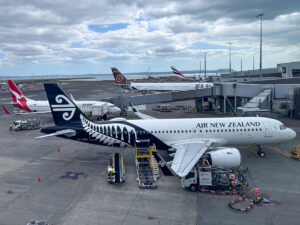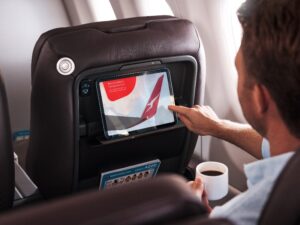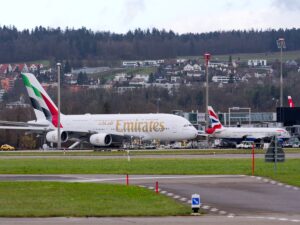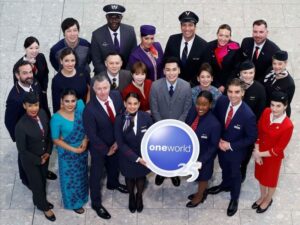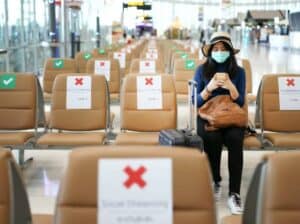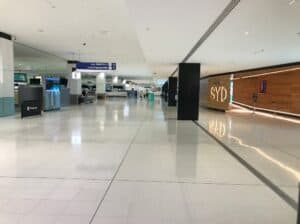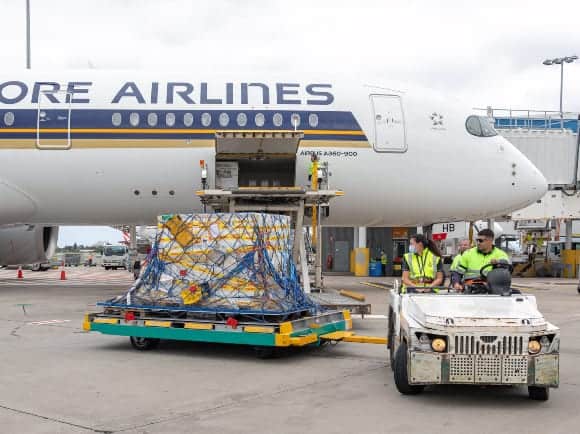
Yesterday marked an historic day for our country, with the first COVID-19 vaccine administered in Australia.
From here, it will still take some months before COVID-19 vaccines are made available to every Australian who wants one. But, hopefully, this marks the beginning of a huge step towards the end of the COVID-19 pandemic, and the resumption of normal life including international travel.
Jane Malysiak, an 84-year-old survivor of World War II, was the first person in Australia to be vaccinated yesterday. Australia’s Prime Minister, Chief Medical Officer and Chief Nursing Officer were also among the group to receive their first vaccine doses yesterday.
Phase 1a of the COVID-19 vaccine rollout begins this week with quarantine, border, frontline health care, aged care and disability care workers all part of the first priority group. Aged care and disability care residents are also part of Phase 1a. Elderly adults, other health care and high risk workers, adults with underlying medical conditions and Aboriginal people aged over 55 are in the next priority group for Phase 1b.
The government expects 80,000 doses of the Pfizer vaccine to be released this week. The number of doses given each week should double from early March, and the approximately 1.4 million people eligible for a vaccine in Phase 1a should be offered their first dose within the next six weeks.
The government plans to offer free vaccines to all Australians by the end of October 2021.
“While we’re taking the time to get the rollout right, I am confident all Australians who wish to be vaccinated against COVID-19 will receive a vaccine this year,” Prime Minister Scott Morrison said last week.
So far, the Therapeutic Goods Administration (TGA) has approved two COVID-19 vaccines for use in Australia after thorough safety and efficacy testing. The first is the Pfizer/BioNTech vaccine, which requires two doses administered 21 days apart. The second vaccine to be approved is the Oxford/AstraZeneca vaccine, which requires two doses given 12 weeks apart.
The Australian government has so far secured 20 million doses of the Pfizer/BioNTech vaccine (enough to immunise 10 million people), and has more than 50 million doses of the Oxford/AstraZeneca vaccine on order (enough for over 25 million people). 50 million of the AstraZeneca vaccines are due to be manufactured by CSL in Melbourne. The Australian government also has agreements to purchase Novavax and COVAX vaccines, which could be used if they are approved by the TGA.
The first vaccines arrived in Australia last Monday
The first shipment of internationally manufactured Pfizer vaccines arrived in Sydney last Monday, with 142,000 doses arriving on a Singapore Airlines flight.
Unlike the AstraZeneca vaccine, which can be stored in a standard refrigerator, the Pfizer vaccine needs to be stored and transported at a temperature of around minus 70 degrees Celsius. This presents a logistical challenge, but the Australian government has contracted DHL to distribute the Pfizer vaccines across Australia using a network of 200 ultra-low temperature portable freezers.
Before arriving in Australia, the first batch of Pfizer vaccines were flown from Brussels to Singapore and then loaded onto another flight – SQ231 which departed Singapore for Sydney just after midnight last Monday. Singapore Airlines has the necessary processes in place to keep the precious cargo at a controlled temperature throughout the entire journey.
Will the vaccines restart international travel?
The beginning of the COVID-19 vaccine rollout in the country is an important milestone for Australians and is newsworthy in its own right. But the reason we’re covering it on Australian Frequent Flyer, a travel website, is that it could have important implications for eventually restarting quarantine-free international travel to and from Australia.
It’s now almost a year since the Australian government banned its citizens from leaving the country without an exemption, and returning Australians have been required to undergo hotel quarantine. While the outbound travel ban is currently due to expire on 17 March 2021, this will almost certainly be extended yet again.
Large-scale trials have already shown that the COVID-19 vaccines being rolled out in Australia are safe and effective at preventing COVID-19 disease. But there is not yet conclusive data that shows how effective the vaccines are at preventing vaccinated (and potentially asymptomatic) individuals from transmitting the SARS-CoV-2 virus, which causes COVID-19 disease, on to other people. It is possible that the vaccines could indeed be effective at reducing transmission of the virus, and preliminary data from Israel is promising, but more research is still needed.
In the coming months, we’re likely to learn much more about this as more people around the world are vaccinated. So far, more than 35 million people worldwide have already been fully vaccinated (i.e. received both doses) against COVID-19. That’s a lot, but still only 0.45% of the world’s population.
Until we learn more about the effectiveness of the vaccines in reducing transmission, the Australian government’s 14-day hotel quarantine requirement for inbound international arrivals will remain. But this won’t be forever.
At worst, even if the vaccines are not effective at preventing transmission, they will still prevent Australians from becoming severerly ill if they contract COVID-19. That’s still a positive outcome, and could mean that international borders are able to be relaxed once the majority of Australians are immunised.
But if the vaccines also prevent transmission, vaccinated Australians may be able to travel overseas again without quarantine even sooner.
The Seychelles, Georgia, Lebanon, Romania, and Poland are already allowing international visitors to skip quarantine by showing proof of COVID-19 vaccination. A small group of other countries including Estonia, Iceland, Greece and Cyprus have also announced that fully vaccinated travellers will soon be able to enter without restrictions. Thailand and Singapore are also reportedly considering relaxing quarantine rules for vaccinated travellers.
More countries are likely to follow over the coming months and years. And for international travellers, it is likely that COVID-19 vaccine certificates will soon become almost as valuable as a passport – at least for the foreseeable future. The good news for Australians is that their vaccinations will be digitally registered by the government and COVID-19 vaccine certificates will be made available to individuals online.
It is not unprecdented for countries to require vaccination as a condition of entry – Australia and many other countries already require travellers to have yellow fever vaccination certificates if they’ve been to certain affected countries in the past six days.
Where to find reliable information about COVID-19 vaccines
For reliable information about COVID-19 and the vaccine rollout, visit the Australian Government Department of Health website (health.gov.au).
The ABC’s daily coronacast podcast, hosted by Dr Norman Swan and ABC health reporter Tegan Taylor, is also an informative and reliable source of regular COVID-19 news and updates.
Join the discussion on the Australian Frequent Flyer forum
Australian Frequent Flyer’s Coronavirus & Travel forum features a range of discussion threads which may be of interest, including:
